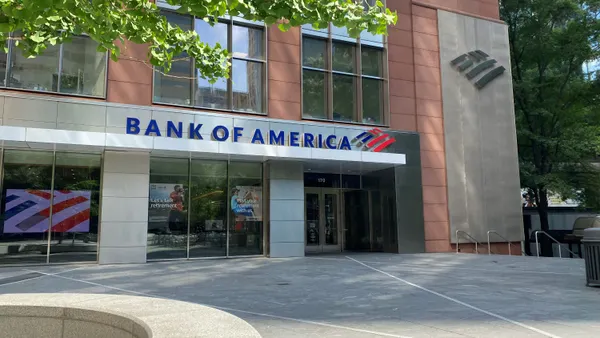Dive Brief:
-
Three advocacy groups announced plans Thursday to sue the Office of the Comptroller of the Currency (OCC) for "unlawfully gutting" the Community Reinvestment Act (CRA), a 1977 anti-redlining law that governs lending in low-income neighborhoods.
-
The OCC released its final 372-page overhaul to the law last week, which came without the support of the Federal Reserve and the Federal Deposit Insurance Corp. (FDIC), and just ahead of Comptroller Joseph Otting’s resignation. Otting will step down Friday and will be replaced by Chief Operations Officer Brian Brooks, who will serve as the agency’s acting comptroller.
-
In a joint statement, the National Community Reinvestment Coalition (NCRC), the California Reinvestment Coalition (CRC) and legal oversight group Democracy Forward said the OCC "fractured the interagency consensus around CRA" and failed to take into account public feedback with the rollout of the new law. "We will not be deterred by those seeking to rig the system in favor of Wall Street," Paulina Gonzalez-Brito, executive director of the CRC, said in a statement. "We'll see you in court."
Dive Insight:
The OCC says its changes are aimed at "strengthening and modernizing" the CRA, but community groups say the revamp will allow banks to lend less to lower-income communities.
"The country’s largest regulator of big banks, Comptroller Joseph Otting, made it his mission to dismantle this important civil rights law, issuing a final rule just five weeks after receiving over 7,000 public comments," Gonzalez-Brito said. "By moving forward despite an overwhelming majority of public commenters disagreeing with the framework put forth in the final rule, it is clear that the outcome was predetermined to fix the game in favor of the big banks to the detriment of communities and the spirit and intent of the law."
It's difficult but not impossible to get a court to overturn a newly adopted regulation, Warren Traiger, senior counsel at Buckley LLP, told Banking Dive.
"A court would need to conclude that the regulatory process or result was not reasonable, but arbitrary and capricious," he said. "The groups’ argument that the final rule was rushed to completion, without appropriate review and consideration of public comments, could support such a finding."
However, the groups first need to prove to the court that they have standing to bring the lawsuit, Traiger said.
"In other words, a group must show it or its members will suffer particular damage from the new regulation, not just that they think it's terrible public policy,” he said. "For example, I argued a case in the court of appeals where an advocacy group challenged a bank merger on CRA grounds, and the court found that the group did not suffer the specific damages necessary to have standing. So the lawsuit could end without ever reaching the merits."
The OCC pushed back against the groups' accusations.
"We look forward to defending our rulemaking process and authority as well as our effort to strengthen the CRA regulatory framework by making it more transparent and objective, which will encourage banks to do even more to meet the needs of their communities, including low- and moderate-income neighborhoods, and will ensure that CRA remains a powerful and relevant force for generations ahead," an OCC spokesperson told Banking Dive.
The rule won't take full effect for several years, and won't have an immediate impact on banks, Traiger said. Most banks will wait for the results of the November presidential election before gearing up for any changes, he added.
"If there's a 'blue wave' that includes the Senate and presidency, it's easy to imagine that the rule will get tossed," he said. "It's much harder to imagine with just the presidency changing parties."










